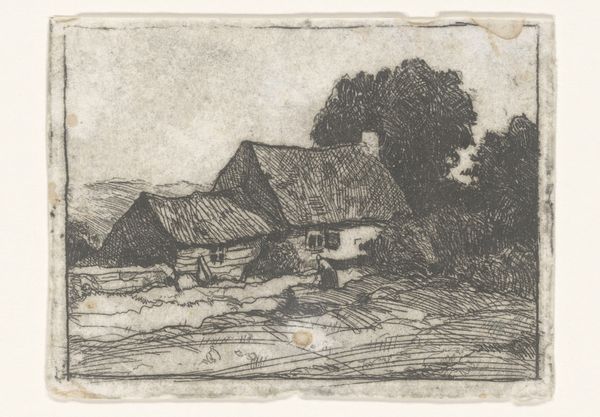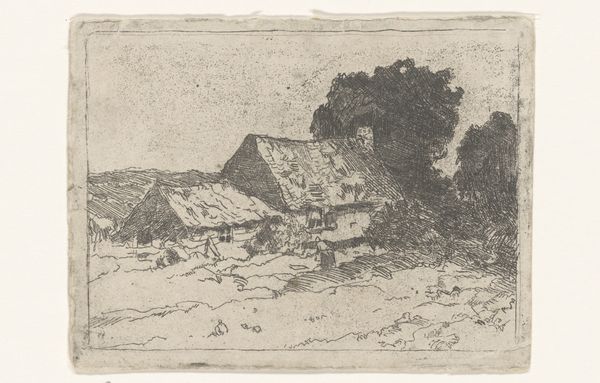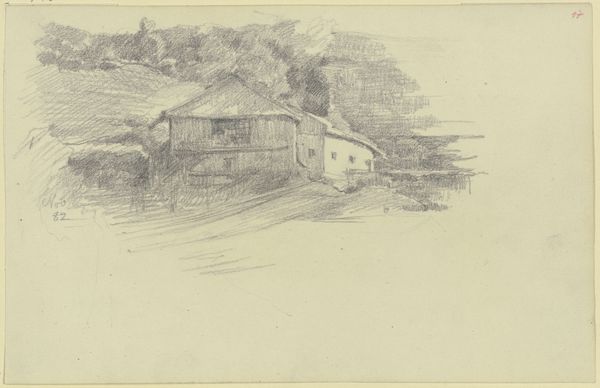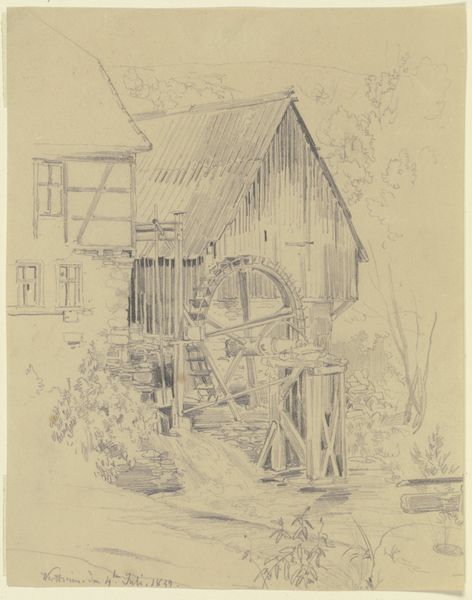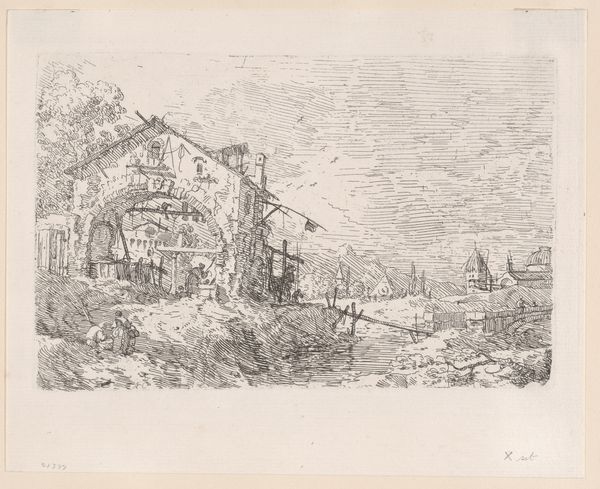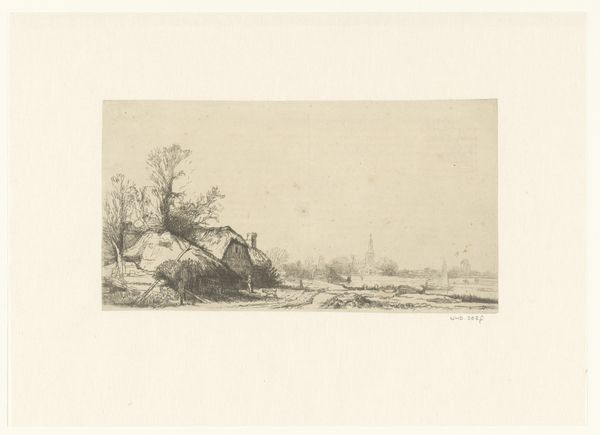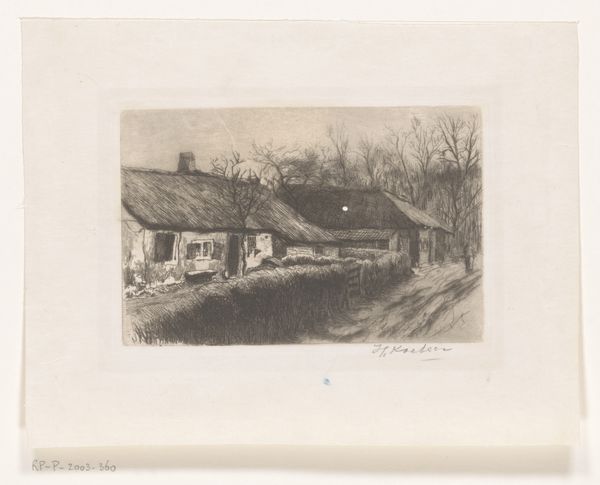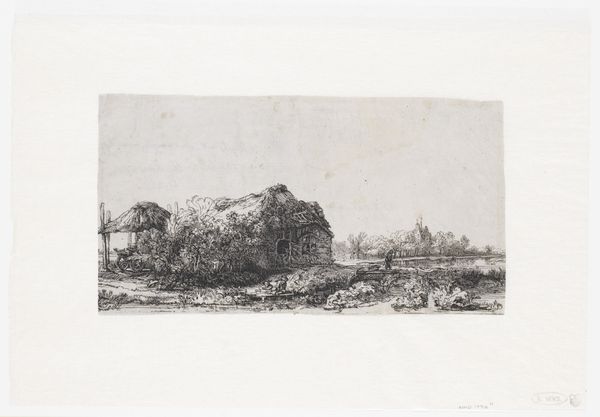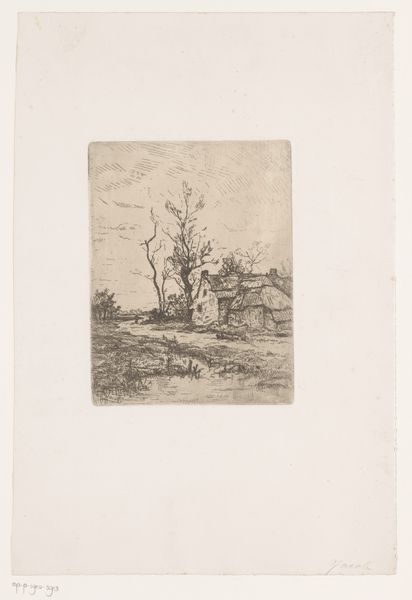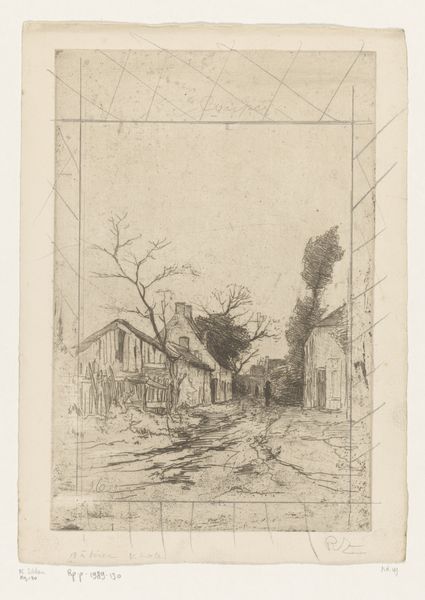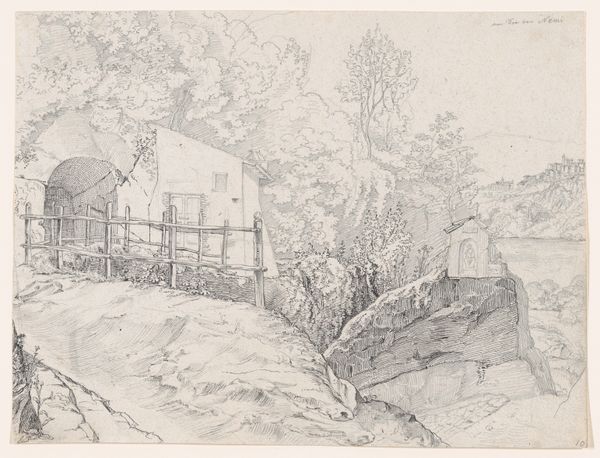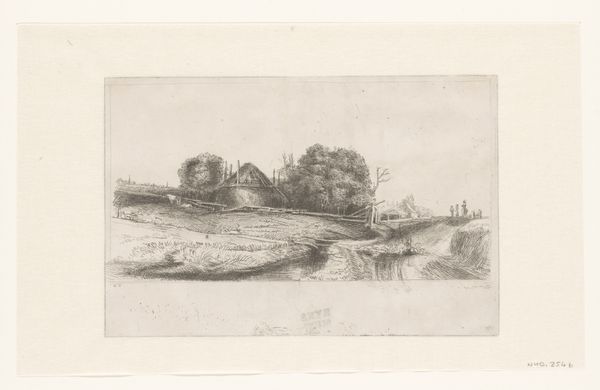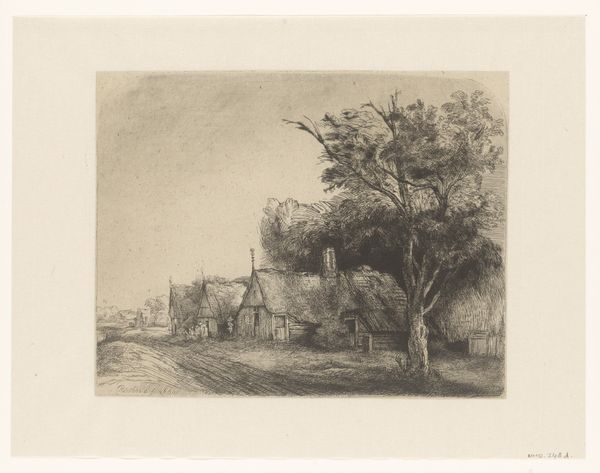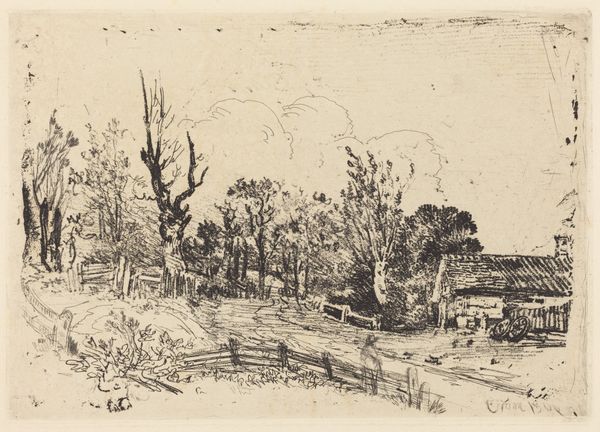![Polling [recto] by Walter Shirlaw](/_next/image?url=https%3A%2F%2Fd2w8kbdekdi1gv.cloudfront.net%2FeyJidWNrZXQiOiAiYXJ0ZXJhLWltYWdlcy1idWNrZXQiLCAia2V5IjogImFydHdvcmtzL2MzMWZmNDZmLWY5MGYtNGZlOC1iZjExLWNjNTU5N2Y5ZDg1NC9jMzFmZjQ2Zi1mOTBmLTRmZTgtYmYxMS1jYzU1OTdmOWQ4NTRfZnVsbC5qcGciLCAiZWRpdHMiOiB7InJlc2l6ZSI6IHsid2lkdGgiOiAxOTIwLCAiaGVpZ2h0IjogMTkyMCwgImZpdCI6ICJpbnNpZGUifX19&w=3840&q=75)
drawing, pencil, frottage
#
drawing
#
pencil sketch
#
landscape
#
romanticism
#
pencil
#
frottage
Dimensions: image (irregular): 30.48 × 22.54 cm (12 × 8 7/8 in.) sheet: 33.97 × 25.4 cm (13 3/8 × 10 in.)
Copyright: National Gallery of Art: CC0 1.0
Curator: Before us is Walter Shirlaw's pencil drawing, "Polling," likely from the late 19th century. It has such a hazy, dreamlike quality. Editor: Oh, instantly I get a wistful vibe. It feels like a memory half-forgotten. That oval composition just wraps everything in a gentle embrace. Curator: Shirlaw's romantic landscape almost entirely obscures any structural presence of a human structure. See how it merges with the natural world? Editor: It's wonderfully unbalanced, isn't it? A kind of organized chaos with a very specific mood. The medium and technique really lend themselves to the humble subject matter: agriculture and manual labour. Curator: It seems Shirlaw’s choices of medium amplify the scene’s historical dimension, giving insight into rural working life in America. One might consider whether such an intimate portrayal reflects a certain Romantic nostalgia for simpler forms of labor and dwelling. Editor: Absolutely, a softer edge of reality is being portrayed here, which, perhaps intentionally, doesn't reflect a modern view on what that existence entails. I appreciate his choice not to overly define details and use frottage that gives it that ephemeral feel. Almost a landscape memory rendered on paper. Curator: This reminds me that many artists were experimenting with accessible drawing practices and incorporating industrial materials during that time, a fact not always visible to us if the artwork’s initial mood is perceived as, to quote you, "dreamy.” Editor: It's funny how a simple sketch can stir such debate. You look at the paper and pencil; I see the longing in those sketchy lines! Curator: Well, regardless of our differing viewpoints, I think this piece ultimately makes us reflect on our connection to nature. Editor: And maybe also question the stories our hearts tell us about those connections, a lovely bit of quiet contemplation for the end of our tour.
Comments
No comments
Be the first to comment and join the conversation on the ultimate creative platform.
